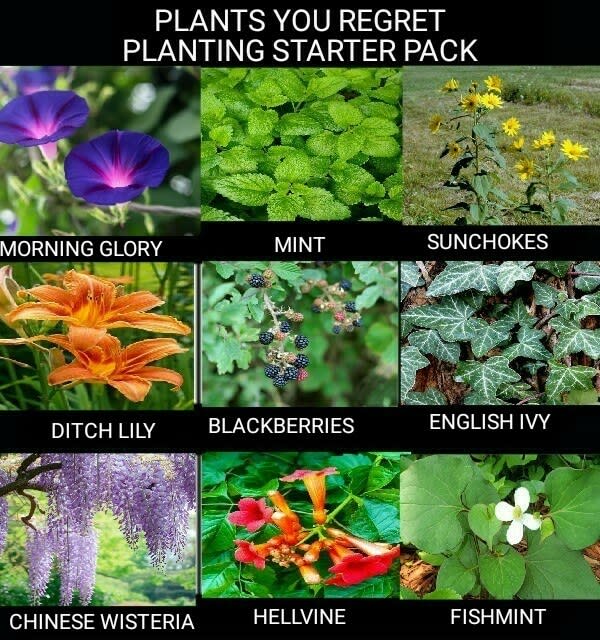Gardeners reveal their biggest planting mistakes: ‘People should regret ever even thinking about planting [these]’
Just because a plant is beautiful to behold, that does not necessarily mean that it is going to make a good addition to your garden.
In one recent thread on the r/gardening subreddit, many gardeners came together to share harrowing tales of the plants they wish they had never introduced.

The original poster got the conversation started with a “plants you regret planting starter pack,” which included morning glory, mint, sunchokes, ditch lily, blackberries, English ivy, Chinese wisteria, hellvine, and fishmint.
Other gardeners were quick to chime in with their anti-recommendations.
“[English ivy] is my arch nemesis right now — just bought a house and the backyard has a perimeter of English ivy. Previous owners clearly just let it do its thing and only mowed the lawn so it’s taking over the fence and trees (and killed at least one),” wrote one commenter.
“I’m shocked bamboo wasn’t on there. I’d also add trumpet vine,” wrote another.
“I have never planted them but Tree of Heaven and Goutweed are two invasive plants people should regret ever even thinking about planting,” wrote a third.
As noted by that last commenter, the common denominator with many of these plants is that they are invasive species — a species that is introduced to a foreign area by human activity and which then causes harm to the local ecosystem.
While not all foreign species are invasive, invasive plant species tend to be very difficult to get rid of, competing too successfully with other wildlife for resources and taking over entire yards and gardens.
Other plants that are classified in some areas as invasive include nasturtium and alyssum. “If you plant these three crops just a single time, they will never leave your garden,” one Instagram gardener told his followers, including sunflowers. “Make sure you know what you’re signing up for.”
Gardening can be a great way to get outside, help out the local ecosystem, and even reduce your reliance on the heavily polluting food industry — but make sure to do your research before you start planting, or you might end up with a lot more of one plant than you bargained for.
Join our free newsletter for easy tips to save more, waste less, and help yourself while helping the planet.
